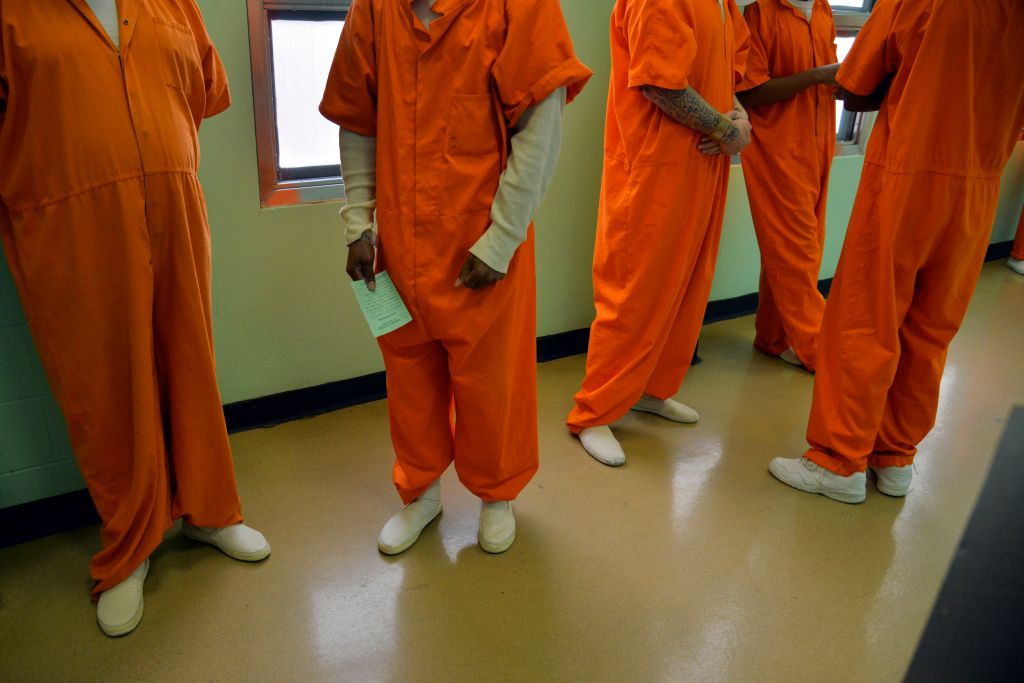5 Ways That Innocent African Americans End Up Behind Bars

Source: The Washington Post / Getty
A
s the IFC/Amazon Studios film Crown Heights garners buzz for it’s painstaking look at the case of an innocent man who spent 21 years in prison, the persistent failures of the United States criminal justice system are again put in the spotlight.
Colin Warner is one of countless Black men whose lives were forever changed by the pervasive injustice and systemic prejudice that feeds what has been come to known as “mass incarceration.” [You can read more about his story here.] The U.S. prison population is about 2.3 million (the largest in the history of the world), with most of its inmates in jail for nonviolent offenses. If our prison population were a city, it would be the size of Houston, Texas.
U.S. prisons are also disproportionately Black, as African Americans are more likely to be stopped by police, more likely to be arrested, more likely to get charged with mandatory minimums, and receive longer sentences when they are convicted, and this institutional anti-Blackness has a great deal to do with for those incarcerated by wrongful conviction. The story of Colin Warner, a Brooklyn immigrant who spent 21 years behind bars for a crime he did not commit, has inspired a powerful film.
Here’s look at the systemic failures that fill prisons, jails, and detention centers with people who shouldn’t be there.
1.Overburdened Defense Lawyers
Too many defense lawyers are overworked and underpaid. On average, a public defender would need an extra six months annually to complete a calendar year’s worth of work. In Missouri, a 2014 study found that the state needed to add 270 more public defenders to represent its poorest defendants adequately. In 2016, Missouri’s head public defender Michael Barrett said that each of his lawyers handled well over a hundred cases at the time. In Florida in 2009, attorneys cleared an average of 2,225 misdemeanors per year. In places like Cole County, Missouri, the caseload of public defenders’ is 225% above their recommended limits.
Pressured to lighten their immense workload and speed up trials, public defenders often persuade defendants to take plea deals. This puts those wrongfully accused of a crime in a seemingly impossible situation: plead guilty to a crime you did not commit and receive fines, parole, or years in jail, or drag the case on longer, possibly lose, and be subjected to larger fines and extensively longer jail sentences. This is why more than 90% of their clients plead guilty.
2.Forensic Evidence
Sometimes innocent people are kept in jail because of errors with, mishandling of, and complete omissions of forensic evidence. Many of the wrong convicted don’t have the resources to pursue their innocence through scientific investigation. But organizations like the Innocence Project and the Equal Justice Initiative are working to solve this issue.
Twenty-two-year-old African-American father Anthony Wright was convicted in 1993 for rape and murder, and sentenced to life in prison. If he had not secured DNA-testing that exonerated him in 2016, he would still be in jail. Alabama man Anthony Ray Hinton spent 30 years on death row after being convicted of two murders. In 2015, a judge dismissed the charges after forensic scientists tested the evidence and confirmed that the bullets at the crime scene did not match Hinton’s gun.
3. Law Enforcement Corruption
Instead of trusting them as servants put in place to secure “law and order,” many Black people see police as the last people they would call for help. Because of constant ticketing, harassment, and brutality, many police have failed to create a partnership with Black communities that would warrant their cooperation. And in some cases, corrupt law enforcement has lead to innocent people going to jail.
In Chicago, more than 100 people filed complaints alleging that police officers, led by then-Chicago Police Commander Jon Burge, tortured them, often to force testimonies and confessions. They went through vile and violent things like being stripped naked, beaten, shocked with electricity, burned with cigarette lighters, and tied up and held for days with food and bathroom access. Cook County had to pay over $100 million in reparations for these acts.
4. Lack Of Speedy Trials
The Sixth Amendment guarantees the right to a speedy and public trial. But when you add the U.S. judicial system’s massive caseload, slow bureaucratic process, and systemic anti-Blackness, not all citizens receive that speedy trial.
A 2012 Houston Chronicle report found that there where about 200 inmates who spent more time behind bars waiting for trial than they would have served if they were found guilty. A Fusion investigation found people waiting five years or more for court dates in more than 15 states. One of these people was Ralph Berry, an innocent Bronx teenager who spent three years in jail before getting his day in court.
5. Money
Regardless of innocence or guilt, whether someone ends up in jail and how long they stay can often depend on the size of their wallet. Tickets, court and lawyer fees, and bail are often too high for people to pay. With the median average wealth of an African-American household being about a tenth of their white counterparts’, Black people are more likely to end up in—and stay in—jail due to lack of financial resources.
In Ferguson and other parts of the St. Louis metropolitan area, poor Black residents spend days in jail for being unable to pay parking tickets, moving violations, and court fees that can be even higher than the original ticket. The Department of Justice found that Ferguson was targeting the Black community to drive city revenue, commonly assigning three or four charges, and sometimes “six, eight, or, in at least one instance, fourteen citations for a single encounter.” The tragic story of 16-year-old Kalief Browder, who was accused of stealing a backpack and spent three years in jail with no trial after he couldn’t pay the $3,000 bail, is a particularly devastating example of how lack of access to money can have devastating consequences for someone who has been arrested. Browder spent over 800 days in solitary (note that the UN has concluded that more than 15 days in such conditions is a form of torture) before being released in 2013. Unable to cope with the depression and trauma from his imprisonment, Browder committed suicide in 2015.
Crown Heights, distributed by IFC and Amazon Studios, is in select theaters nationwide. Check the film’s official website for showtimes, as well as a comprehensive look at Colin Warner’s story.















